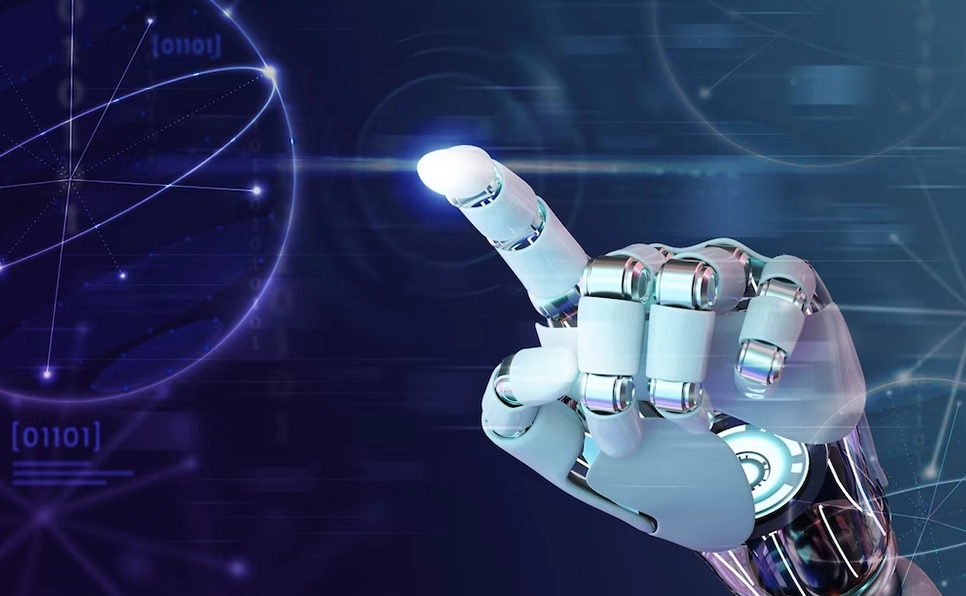Introduction
AI can completely change how we work and live, and it already plays a significant role in our daily lives. Artificial intelligence (AI) can be used to produce new goods and services, boost productivity, and automate repetitive operations. With its learning ability, AI has the potential to go beyond its current applications and assume new responsibilities that will help people all over the world live better lives.
History
The phrase “artificial intelligence” (AI) refers to a machine’s capacity to mimic human behaviour. AI has been around since the 1950s, although the ideas behind it can be traced back as far as antiquity. In the 1950s, Computer programmes that could handle massive amounts of data and solve complex problems were created by scientists. This made it possible for them to develop technology that could recognize and interpret patterns in data as well as comprehend and respond to human language.
Since then, artificial intelligence (AI) has significantly influenced modern life, from the creation of self-driving automobiles to voice-activated virtual assistants. The use of artificial intelligence in healthcare, education, finance, and many other fields has the potential to significantly improve our quality of life.
Use in daily life
The usage of artificial intelligence (AI) in daily life is growing. Artificial intelligence (AI) is becoming more and more crucial in optimizing our daily activities, from straightforward tasks like booking appointments to more difficult ones like facial recognition. Healthcare, education, business, and even entertainment can all benefit from the usage of AI to make our lives easier.
AI, for instance, can be used to automate medical diagnostics, assisting in the rapid and precise identification of disorders. AI can be used to provide educational assistance, such as providing personalized learning experiences tailored to a student’s needs.
AI can be used in the business sector to evaluate customer data and better analyze the needs and preferences of customers. AI can also be utilized to create entertaining content, such as virtual assistants that can respond to queries and make suggestions.
The field of computer science called Artificial Intelligence (AI) is focused on building intelligent machines that function and behave like people. Game-playing computers, voice recognition technology, self-driving automobiles, and facial recognition technology are some typical examples of AI. Tasks can be automated by AI, and it can analyze data and offer more precise insights than was previously possible.
Machine learning, natural language processing, computer vision, robotic process automation, and deep learning are just a few of the methods and tools that fall under the umbrella of artificial intelligence. AI allows for the training of computers to make judgments, forecast outcomes, and spot patterns in data. AI can be used to streamline corporate operations and enhance customer service.
Use in B2B
Artificial intelligence (AI) can completely transform how B2B organizations conduct their operations. Businesses may be more productive and effective by using AI to automate procedures and streamline operations. To assist organizations to make better choices, AI may also be used to analyze vast volumes of data and find patterns to reveal insights into customer behaviour and preferences.
AI can also be used to personalize customer experiences, increasing the likelihood that they will interact with the brand and form lasting relationships. In general, AI may assist companies in maximizing their potential and staying one step ahead of the competition.
Use in digital marketing
Artificial intelligence-based digital marketing can completely change how companies connect with their clients. Businesses may customize and improve their campaigns by employing AI-driven marketing techniques to increase campaign engagement and conversion rates.
AI can automate marketing tasks like content production, ad targeting, and email campaigns as well as analyze customer data in real-time to spot trends and preferences. Businesses can also use AI to customize consumer experiences, enabling them to build deeper connections with their clients.
Benefits
Many repetitive processes can be automated by AI, making them more effective and quicker. By revealing insights that are too complicated for humans to understand on their own, AI can also assist us in making judgments.
AI can help doctors diagnose diseases more quickly and precisely, which will enhance healthcare. Moreover, AI can be used to improve online security by identifying and preventing harmful activities. Finally, by giving us access to robust data analysis tools, AI can improve our understanding of the world. These are only a few of the potential advantages of AI that could make our lives simpler and safer.
Disadvantage
Artificial intelligence has several drawbacks, one of which is its excessive cost. As AI technology develops, companies may find it expensive to incorporate AI systems. AI systems also need a lot of data to work well, and gathering and keeping this data can be expensive.
AI systems can be challenging to safeguard and are susceptible to cyber-attacks. AI systems can also make mistakes and be challenging to debug and maintain. Finally, as more and more tasks are mechanized, AI may result in employment losses.
Conclusion
In conclusion, artificial intelligence (AI) is becoming a more potent tool for both people and organizations. AI technology can be applied to automate repetitive operations and offer more effective solutions to challenging issues. But, it’s important to remember that AI is still in its infancy and could be misused.
It is important to think about the moral implications of AI technology and make sure it is applied properly. Understanding the potential hazards and benefits of AI will become more important for businesses and individuals as the technology develops and becomes more powerful.



